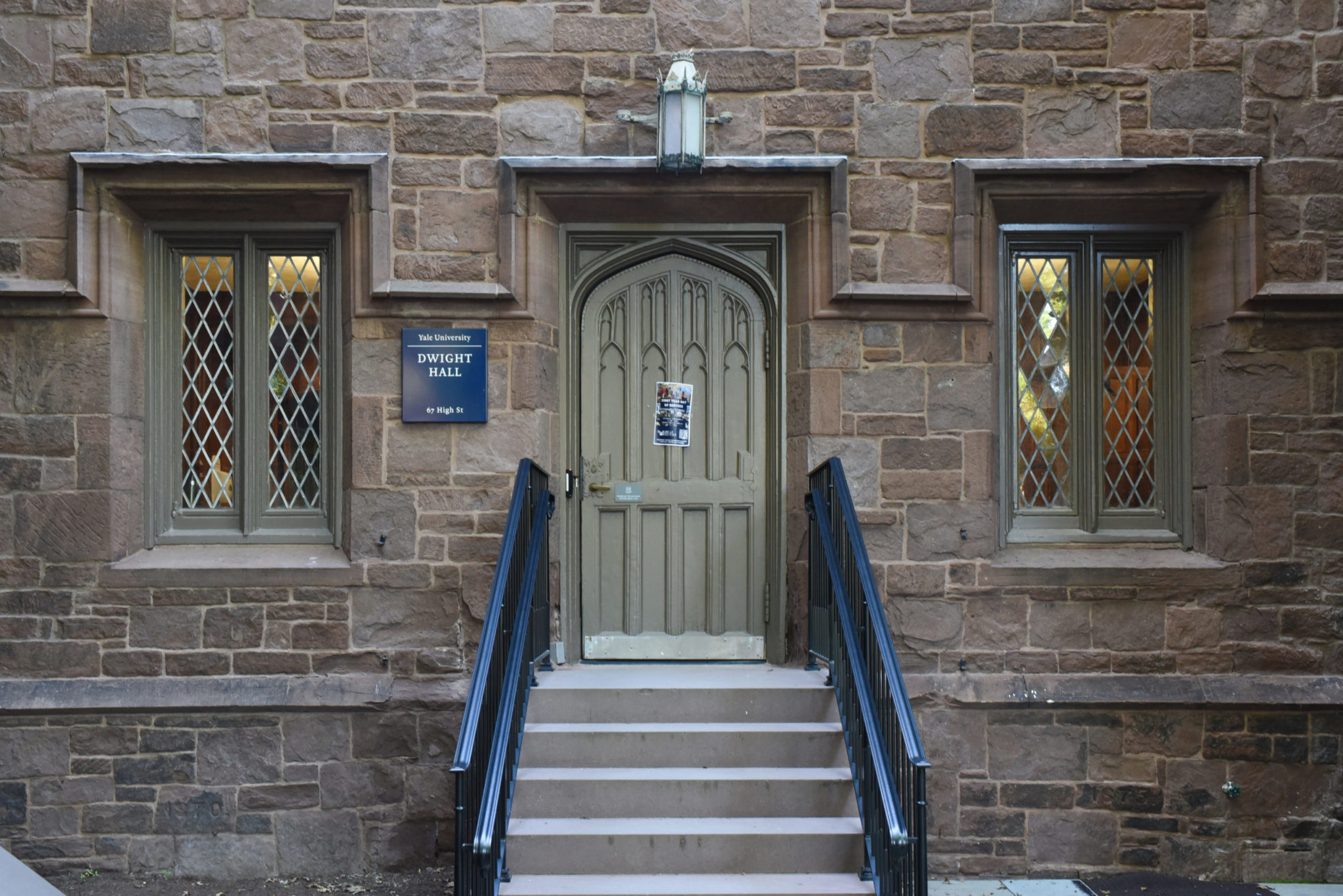Dwight Hall to continue operating remotely through the spring
Due to the ongoing COVID-19 pandemic, Dwight Hall will continue to hold its community outreach initiatives in a remote format, a move that student leaders expressed dissatisfaction with.

Ryan Chiao, Managing Editor
While Dwight Hall volunteers can typically be found traveling to service locations across New Haven, the continuation of the COVID-19 pandemic has forced the usually hands-on initiative to take place remotely.
Throughout the fall semester, Dwight Hall organizations and events were all held virtually. According to Executive Director and General Secretary of Dwight Hall Peter Crumlish, while the center was optimistic about a return to in-person operations this year, the rise of the Omicron and Delta variants on campus has made that unlikely. Volunteers will continue to work remotely in compliance with University precautions for the foreseeable future, he said.
“My biggest goal is that despite what we’re living through, Yale students have the best possible experience through Dwight Hall that they can have under the circumstances and that our community partners know that we’re still committed to them,” Crumlish said.
Dwight Hall groups will be operating remotely in compliance with University policy. While Dwight Hall lacks jurisdiction over University COVID-19 policies, it has advocated for a safe return to in-person service. According to Crumlish, leaders discussed concern for community engagement and how it could continue despite the circumstances.
While Dwight Hall’s Student Executive Committee did not play a formal role in the decision, the committee has pushed for a return to in-person volunteering. Co-coordinators of the Student Executive Committee Carlos Brown ’23 and William An ’24 told the News that, while the safety of the community should remain the first priority, they hope that safe, in-person volunteering will resume as soon as possible.
Brown and An felt that last semester was a “missed opportunity” to return to in-person volunteering due to policies surrounding off-campus community engagement, as remote service detracts from the work of some Dwight Hall groups.
“Our community partners are working in person and they want our support in person,” Brown and An wrote in an email. “Not everything can be done virtually and organizations like [Yale Hunger and Homelessness Action Project] are severely limited by these policies.”
Moving forward, Brown and An said that Dwight Hall hopes to request permission from the University to begin in-person activities and service. They plan to have the Dwight Hall Student Cabinet present safety plans, which were created by member groups with assistance from Dwight Hall’s COVID-19 Safety Plan Review Team.
“We understand that off-campus engagement can be complicated during a public health crisis, but the solution is not isolating Yale University from New Haven,” Brown and An wrote. “Service to this community should not be the University’s lowest priority when it reviews restrictions in the coming weeks — it should be among the highest.”
Though volunteering takes place remotely, Dwight Hall has tried to expand its range of opportunities over the past year.
Events such as panels work to inform students of career and service opportunities along with fellowships and experiential learning programs, Crumlish said. He added that Dwight Hall will open 25 new remote fellowships this semester.
“The biggest thing is that we’ve really leaned into trying to make community engagement something that can happen even if we can’t physically be present,” Crumlish said.
Crumlish added that this expansion of fellowships works to both ensure that Yale students have ample opportunities for service and to assure community partners that Dwight Hall continues to work with them.
For now, Yale service programs will remain remote.
Dwight Hall was founded in 1886.
Clarification, Feb. 20: A previous version of this article suggested that Dwight Hall leadership was responsible for the decision to operate remotely. In fact, Dwight Hall does not decide if its organizations operate in-person or remotely, as the center must comply with University COVID-19 policies. The article has been updated to reflect this.







